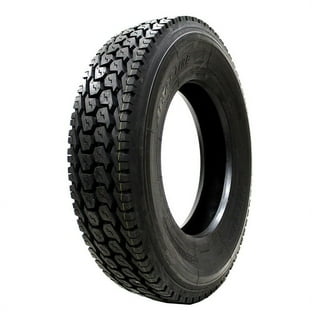Tire Solution: Recognizing Tire Stress Tracking Solutions
Comprehending Tire Pressure Tracking Systems (TPMS) is a critical facet of maintaining ideal vehicle performance and safety and security on the road. With advancements in auto innovation, TPMS has become a conventional feature in modern lorries, offering real-time information on tire stress degrees.

Significance of TPMS
The significance of Tire Pressure Monitoring Equipments (TPMS) depends on their ability to enhance car safety and security and efficiency with real-time surveillance of tire stress degrees. Keeping the correct tire pressure is critical for making certain optimum handling, braking, and total safety of a vehicle. TPMS gives motorists with immediate comments on any kind of overinflated or underinflated tires, enabling prompt modifications to be made.
Components of TPMS
Sensing units are usually located in the tire valve stem or attached to the wheel assembly, where they gauge tire pressure and transfer data to the control component. Some progressed TPMS versions additionally present the actual tire pressure analyses for each tire, giving chauffeurs with real-time information to guarantee optimal tire efficiency and safety and security. By keeping an eye on tire pressure continuously, TPMS helps prevent mishaps, minimizes tire wear, and improves gas performance, making it a vital element for lorry security and efficiency. discount tires morris il.
Kinds Of TPMS

On the various other hand, indirect TPMS relies upon the car's wheel rate sensing units to keep an eye on tire stress. This system identifies underinflation by comparing the rotational speeds of the wheels. Indirect TPMS is much less expensive than direct TPMS, as it utilizes existing sensors within the automobile.
While straight TPMS offers a lot more accurate readings, indirect TPMS is less complex in style and usually needs much less upkeep. Both systems have their advantages and restrictions, and the option between them commonly depends on variables such as cost, lorry make, and personal preference. Recognizing the distinctions between these two sorts of TPMS can help vehicle owners make informed decisions concerning tire upkeep and security.
TPMS Maintenance Tips
Efficient maintenance of TPMS is important for making sure optimum efficiency and safety and security of your automobile. Consistently evaluating the TPMS sensing units for any kind of damages or deterioration is vital. Guarantee that the sensors are cost-free and clean from particles that could hinder their performance. In addition, it is suggested to inspect the sensor batteries periodically and change them navigate to this site as required to guarantee exact analyses. Conduct routine checks on the tire stress levels and compare them with the TPMS readings to ensure they are consistent. If there are any inconsistencies, rectify the system complying with the supplier's guidelines. Moreover, during tire turning or substitute, make certain that the TPMS parts are taken care of meticulously to prevent any possible damage. If the TPMS warning light illuminates on the control panel, attend to the concern without delay by checking the tire stress and the overall system for any type Related Site of mistakes. By adhering to these upkeep pointers, you can extend the lifespan of your TPMS and boost the security of your driving experience.
Benefits of Appropriate Tire Pressure
Keeping appropriate tire pressure, as emphasized in TPMS Maintenance Tips, is critical for gaining the countless advantages linked with optimal tire pressure degrees. Furthermore, appropriate tire pressure guarantees also tire wear, expanding the life expectancy of the tires and advertising much safer driving conditions. In conclusion, the advantages of correct tire stress go past just tire longevity; they encompass enhanced fuel efficiency, enhanced safety, far better lorry performance, and total driving convenience.
Final Thought
In conclusion, understanding tire stress tracking systems (TPMS) is essential for keeping ideal tire stress and making certain automobile safety. By identifying the value of TPMS, being familiar with its parts, knowing the various types readily available, adhering to correct upkeep tips, and realizing the benefits of preserving correct tire pressure, vehicle drivers can boost their driving experience and prolong the life expectancy of their tires. Appropriate Look At This tire stress is key to efficient and risk-free automobile procedure.
